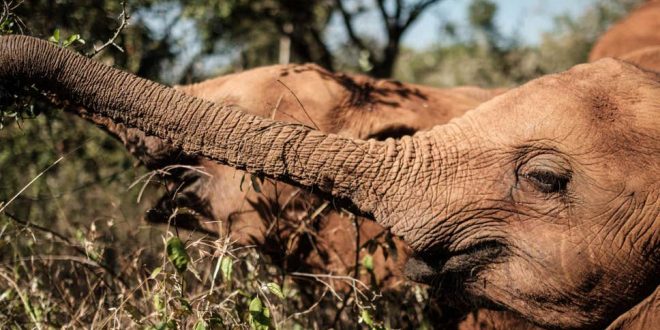Wiping out animals could mean 7 per cent more carbon released but conserving them would be worth £34bn in CO2 storage, study finds
Wiping out all of Africa’s elephants could accelerate Earth’s climate crisis by allowing 7 per cent more damaging greenhouse gases into the atmosphere, scientists say.
But conserving forest elephants may reverse the trend, providing a service worth $43bn (£34.3bn) in storing carbon, the academics found.
Large herbivores are known to be vital in spreading seeds, but until now ways in which elephants affect rainforests have been something of a mystery.
Earlier this month, Swiss scientists reported that planting billions of acres of trees in an area the size of the US could be the “most effective solution to climate change to date”.
Using model simulations, the scientists from the Laboratory of Climate and Environment Sciences in France said one animal for every square km increases forest biomass by 60 tonnes per hectare (0.01 square kilometres).
Mr Berzaghi and his colleagues found that when elephants thin out forests, eating those that are less than 30cm wide, there is less competition among the vegetation for light, water and space, which allows fewer and larger trees – and with a higher wood density – to emerge, increasing amounts of carbon stored.
The research suggests elephants have an important role in shaping the structure of African forests.
“We speculate that the presence of forest elephants may have shaped the structure of Africa’s rainforests, which probably plays an important role in differentiating them from Amazonian rainforests,” the paper said.
The projected drop of about 7 per cent of carbon stocks “is more than the estimated loss in tropical America and Africa due to the disappearance of large-seeded trees and their dispersers”.
The report added: “Elephant conservation may reverse this trend, which would represent a carbon storage service of US$43bn at a conservative carbon stock price.
“The value of the ecosystem services provided by the forest elephant and other megaherbivores should be reassessed in relation to carbon storage policy, forest management and conservation.”
The Independent
 Lebanese Ministry of Information
Lebanese Ministry of Information



